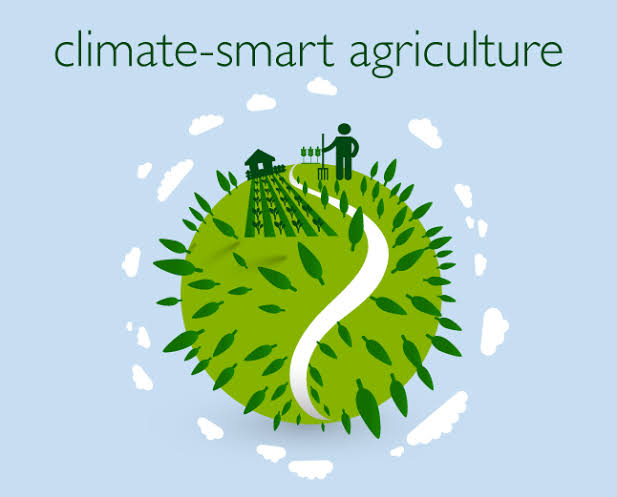NGO Trains 100 Women on Climate-Smart Agriculture for Enhanced Resilience

In a significant effort to bolster the capacity of women farmers and fortify their ability to combat climate-related challenges, the International Centre for Environmental Health and Development (ICEHD), a non-governmental organization, has successfully trained 100 women farmers in the Ikorodu region of Lagos.
This initiative, rooted in climate-smart agriculture, aims to equip women with essential skills, resources, and tools to enhance their resilience in the face of climate uncertainties.
During the training program on Tuesday, Miss Mercy Joshua, the Programme Manager, emphasized that the provision of farming tools plays a pivotal role in enabling women farmers to access skills, resources, and opportunities essential for addressing climate-related issues.
The overarching goal of the training, themed “Climate Justice and Economic Resilience Project for Rural Women Farmers in Nigeria,” is to amplify farm production and bolster food security, thereby enhancing the economic well-being of participating women.
The training program seeks to address the economic exclusion of numerous women in Nigeria due to a confluence of socioeconomic factors and cultural barriers.
The exacerbating impact of climate change further aggravates this disparity, as Nigeria experiences shifts in temperature patterns, irregular rainfall, flooding, and land degradation.
These changes manifest gendered effects, disproportionately affecting women and exacerbating gender inequalities.
Small-scale women farmers find themselves at the forefront of the adverse effects of climate change, grappling with disrupted opportunities, diminished market access, and dwindling profits.
In recognition of these challenges, ICEHD, in collaboration with the African Development Fund (AWDF), embarked on a two-year project.
Through a series of engagements with community leaders, women’s groups, and local women farmers across Nigeria’s six geo-political zones, the project strives to empower rural women farmers with knowledge, skills, resources, and tools that enable them to access economic opportunities and develop sustainable solutions for climate challenges.
The collaboration also extends to government bodies, with ICEHD partnering with the Lagos State Ministry of Agriculture, Women Affairs and Poverty Alleviation, and the Ministry of Environment and Water Resources.
This partnership has resulted in the training of over 100 women farmers in Lagos during the project’s second year.
The initiative aspires to engender a transformative change, enabling women to partake equally with men in accessing resources and opportunities that foster economic advancement.
The women farmers participating in the program were provided with essential farming tools, including garden implements, portable watering cans, organic fertilizers, super-grow boosters, and soil amendments.
Additionally, they received copies of the ICEHD publication titled “Power of Resilience: Nigerian Women Farmers Share their Challenges and Experiences,” enhancing their knowledge base.
Speaking to the significance of sustainable practices, Mrs. Temitope Okunnu, Head of Foundation for a Better Environment (FABE), advocated for the use of natural composites and pesticides as viable alternatives to preserve soil health and human well-being.
Mrs. Omogoriola Beckley, representing Mrs. Oluyemi Kalesanwo, Perm Sec., Lagos State Ministry of Women Affairs and Poverty Alleviation, lauded the training for enriching the farming process.
Expressing gratitude for the capacity-building initiative, Mrs. Aminat Shabi, a beneficiary, highlighted how the training equipped them with essential guidelines to manage the challenges posed by climate change.
She further appealed to the organizers to make the training sessions a regular occurrence to continually empower women farmers in their pursuit of sustainable agriculture.
